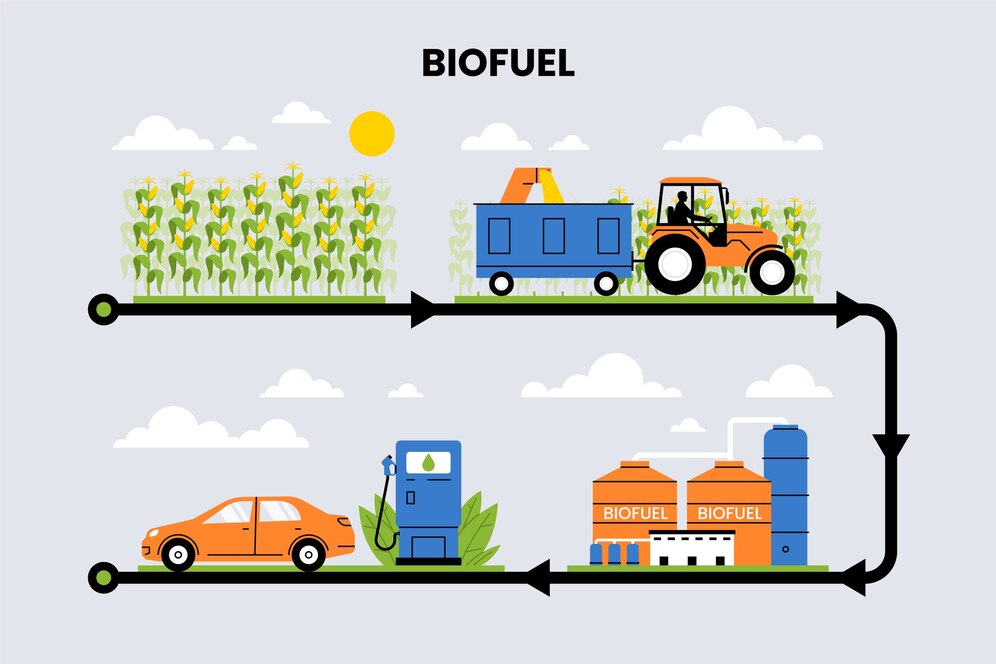Used to produce biodiesel, this process involves reacting vegetable oils or animal fats with alcohol (methanol or ethanol) in the presence of a catalyst.
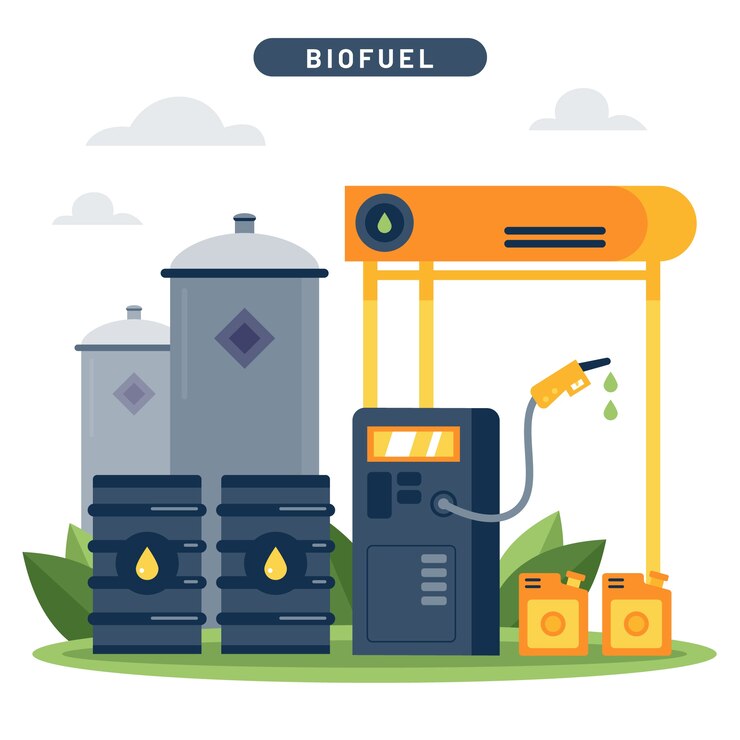
Biofuel - Powering a Sustainable Future
Biofuels are renewable energy sources derived from organic materials such as vegetable oils, animal fats, and agricultural waste. Unlike fossil fuels, biofuels are biodegradable, non-toxic, and produce significantly lower emissions of harmful pollutants. As the world shifts towards cleaner energy solutions, biofuels play a crucial role in reducing our carbon footprint and promoting environmental sustainability.
Exploring the World of Biofuels
Biofuel is a highly valuable form of renewable energy that can be directly used in any existing, unmodified diesel engine. Produced from renewable sources such as new and used vegetable oils and animal fats, biofuel serves as a cleaner-burning replacement for petroleum-based diesel fuel.
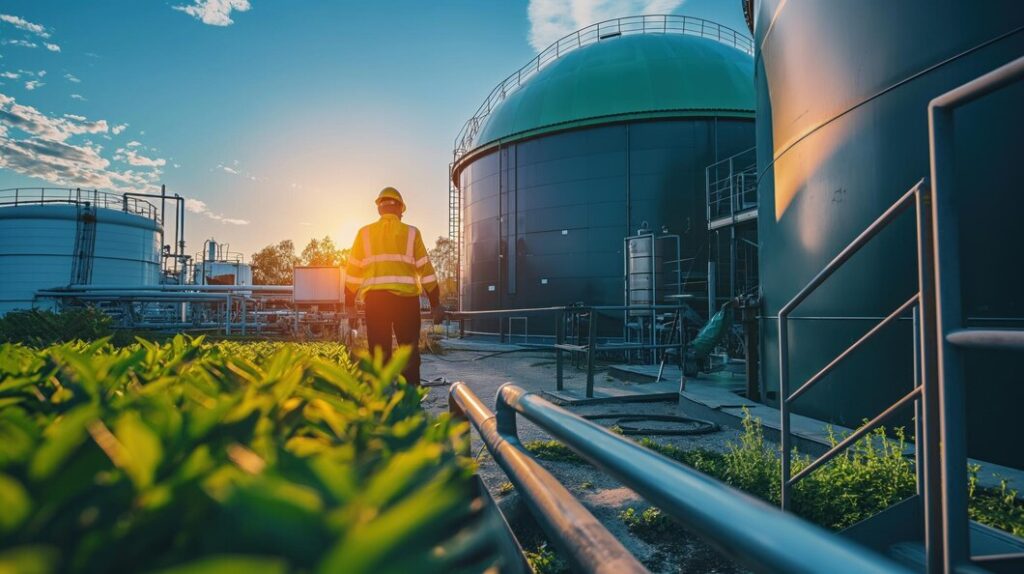
Biodiesel
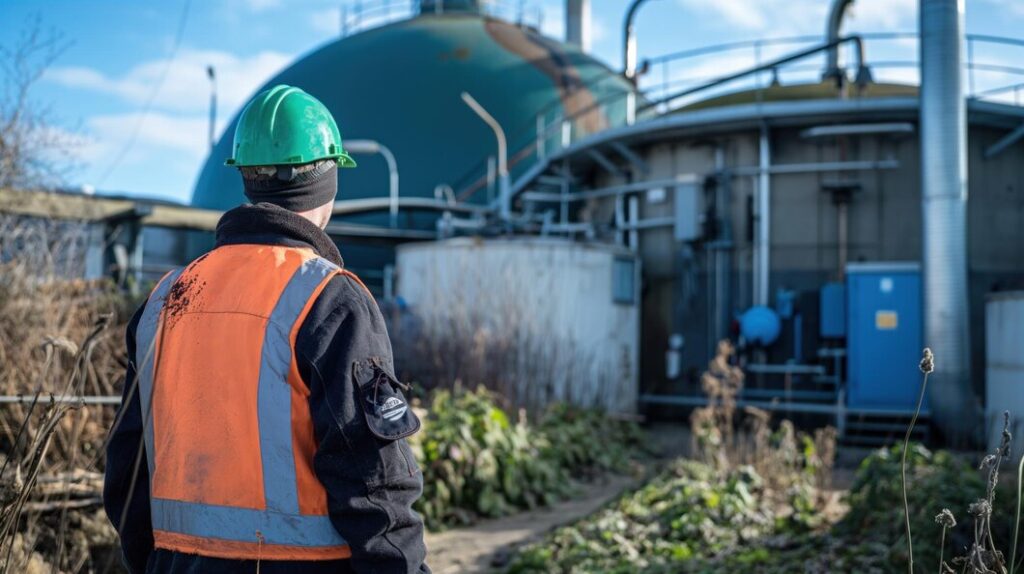
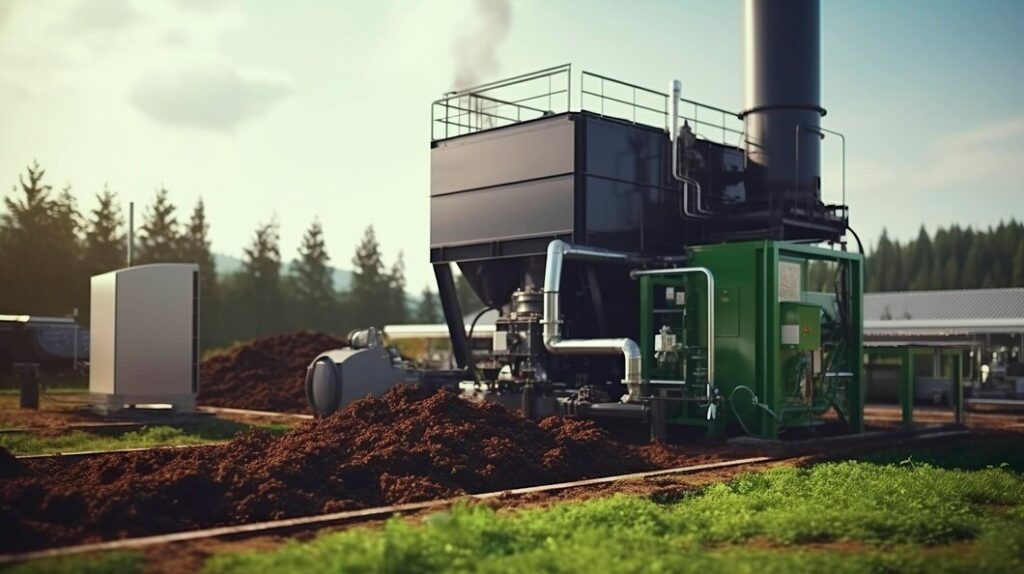
Bioethanol
Bioethanol is a high-octane biofuel produced through the fermentation of crops like corn, potatoes, grain (wheat, barley, and rye), sugar beet, sugar cane, and vegetable residues. It serves as a renewable alternative to gasoline, contributing to lower emissions and reduced dependence on fossil fuels.
Why Use Biofuel?
Biofuel offers a sustainable and environmentally friendly alternative to traditional fossil fuels. Made from renewable resources, it reduces greenhouse gas emissions, decreases reliance on imported fuels, and promotes energy independence. Biofuel is biodegradable, non-toxic, and compatible with existing diesel engines, making it an easy and impactful switch for a cleaner, greener future.
In addition to its environmental benefits, biofuel supports local economies by utilizing domestic agricultural products and waste materials. This not only creates jobs but also adds value to agricultural by-products. Furthermore, biofuels contribute to improved air quality by emitting fewer pollutants and particulates compared to traditional fuels. By choosing biofuel, we can collectively take a step towards a more sustainable energy landscape and a healthier planet.

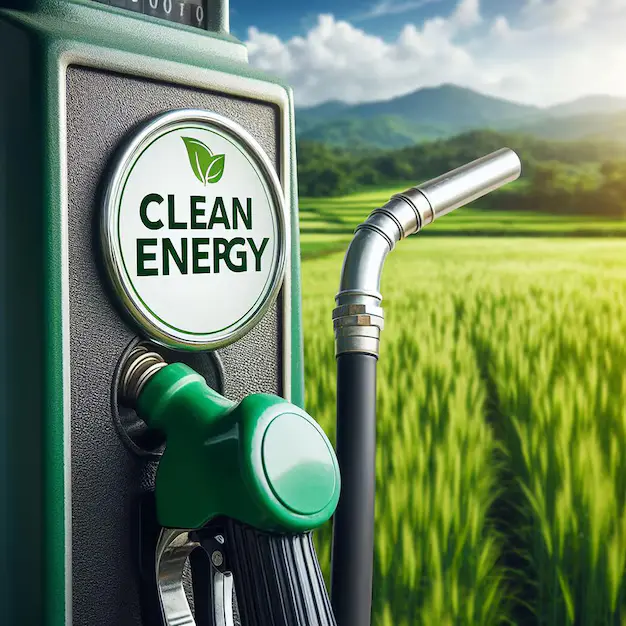
The Advantages of Biofuels
Biofuels offer a sustainable and eco-friendly alternative to traditional fossil fuels. They bring numerous benefits, including energy security, environmental protection, and economic growth.
Renewable Resource
Biofuels are produced from renewable materials, making them a sustainable alternative to finite fossil fuels.
Energy Security
Utilizing biofuels reduces dependence on imported oil, enhancing national energy security.
Environmental Impact
Biofuels produce fewer greenhouse gases and pollutants, contributing to cleaner air and reduced global warming.
Economic Growth
The biofuel industry creates jobs and stimulates local economies by supporting agricultural and manufacturing sectors.
Biodegradability
Biofuels are non-toxic and break down more easily in the environment, reducing pollution risks.
Performance
Biofuels can improve engine performance and efficiency, providing a reliable fuel source for various applications.
Applications of Biofuels
Biofuels are versatile and used in various sectors, including transportation, heating, and electricity generation. They offer a sustainable alternative to traditional fossil fuels.
Transportation
Biofuels are widely used as eco-friendly alternatives to gasoline and diesel in vehicles, significantly reducing dependence on fossil fuels.
Heating & Electricity
Biogas can be used for heating and generating electricity, providing a renewable energy source for homes and businesses.
Industrial Use
Biofuels can power industrial processes, reducing carbon emissions and improving sustainability.
How Biofuels are Produced
Biofuels are produced through various processes, depending on the type of biofuel
 01
01
Transesterification
 02
02
Fermentation
Bioethanol is produced by fermenting sugars found in crops like corn, sugarcane, and potatoes.
 03
03
Anaerobic Digestion
Biogas is created through the breakdown of organic matter by bacteria in the absence of oxygen.
Future of Biofuels
Biofuels represent a crucial component of the transition towards a more sustainable energy system. As technology advances, the production processes for biofuels are becoming more efficient, cost-effective, and environmentally friendly. Innovations in feedstock and conversion technologies are paving the way for the development of next-generation biofuels that offer even greater benefits in terms of energy output and reduced emissions.
The future of biofuels is also marked by their potential to integrate with other renewable energy sources, such as solar and wind power, creating a more resilient and diversified energy landscape. By supporting ongoing research and development, we can ensure that biofuels continue to play a significant role in reducing our carbon footprint and achieving long-term energy sustainability.

